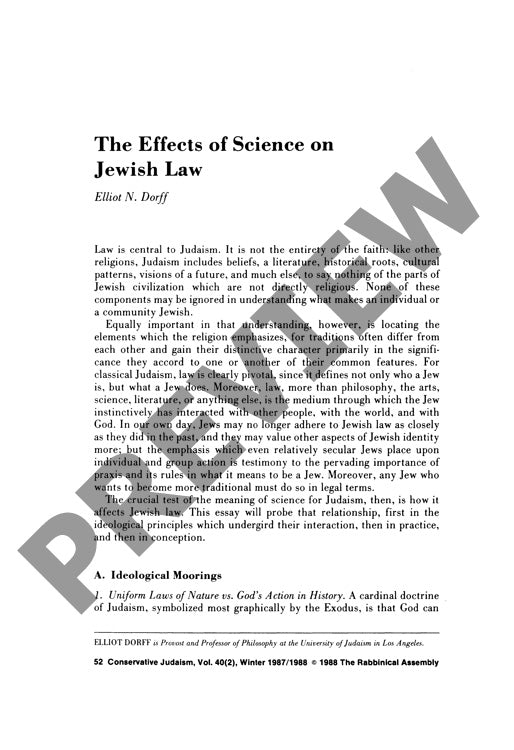The Effects of Science on Jewish Law
Couldn't load pickup availability
Abstract This study examines the complex relationship between scientific advancement and Jewish legal decision-making, analyzing how empirical knowledge influences halakhic (Jewish legal) determinations. The research employs a three-pronged methodological approach, investigating ideological principles underlying science-Judaism interactions, practical applications in contemporary legal decisions, and conceptual frameworks governing their ongoing development. The analysis reveals that while Judaism maintains core theological commitments to divine intervention in history, the tradition has consistently embraced scientific inquiry as both permissible and theologically mandated, viewing humans as God's partners in creation. Findings demonstrate that scientific input significantly impacts Jewish legal rulings through direct informational contributions—particularly in astronomy, medicine, and dietary law—and indirect influences by restructuring the contexts in which laws must be applied. However, the study emphasizes that rabbinical authorities, not scientists, retain ultimate decisional power in legal determinations, weighing scientific evidence alongside traditional sources and communal considerations. Contemporary applications in bioethics, including abortion, euthanasia, and homosexuality, illustrate the ongoing necessity for rabbinic interpretation of scientific facts within Jewish moral frameworks. The research concludes that effective integration requires dynamic conceptions of both scientific knowledge and Jewish law, enabling mutual correction of potential aberrations while maintaining traditional commitments. This integrated approach reflects historical Jewish practice and provides a model for addressing emerging scientific-legal challenges.

More Information
-
Physical Description
-
Publication Information
Published 1987-1988
ISBN
-
Publication Credits
Elliot Dorff

